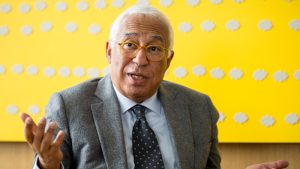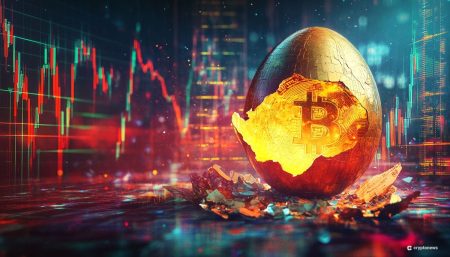On Tuesday, new Binance CEO Richard Teng stated in an interview with Cointelegraph that Binance is now “totally different” from its early days.
Binance has undergone major changes in recent weeks following the record-breaking $4.3 billion settlement with U.S. authorities for compliance violations.
Teng took over as CEO of Binance on November 21, replacing founder Changpeng “CZ” Zhao. As part of a settlement with the U.S. Department of Justice, CZ pleaded guilty to charges and can no longer be involved in Binance’s day-to-day operations.
Speaking just two weeks after assuming the CEO role, Teng conveyed optimism about leading Binance through ongoing regulatory challenges.
“I’m taking the baton and pushing ahead with our growth agenda while working very closely with global regulators,” Teng stated.
$4.3 Billion Settlement Result of Early Compliance Gaps
According to Teng, mistakes made during Binance’s early years led to the massive settlement reached with U.S. authorities. He acknowledged that “in those very early days, while we were building up the company, there were gaps in terms of compliance.”
Binance grew exponentially after its founding in 2017, expanding from six people to thousands in just a couple of years. Teng admitted that the gaps in compliance during this period resulted in violations of regulations and sanctions programs.
Teng asserted that despite scrutiny by U.S. agencies, there has been “no allegation of any misappropriation of user funds.” He maintained that Binance always ensured the security of customer assets.
Ongoing Obligations Under Settlement With DOJ
As part of the $4.3 billion settlement, Binance faces a five-year monitorship and major continuing compliance requirements, including a mandated complete exit from the United States by the crypto exchange.
Teng declined to discuss specifics of Binance’s ongoing legal battle with the SEC. He stated that the costs of the DOJ settlement and SEC case have been factored in, however.
Binance is in the process of paying the $4.3 billion penalty, while CZ will personally cover a separate fine of $50 million.
Is Binance Being Singled Out?
BitMEX founder Arthur Hayes has suggested that Binance received unfair treatment compared to Wall Street institutions. Teng, on the other hand, acknowledged that large fines are not uncommon in the financial sector, totaling around $90 billion.
I love the way @_RichardTeng and @binance a keep building that means this the current ceo is going do well like or more than @cz_binance buti know cause the hero
— CRYPTOBIO (@MuhdMuhdUsman3) December 5, 2023
But he avoided speculating on whether Binance was singled out. With operations in 18 jurisdictions, Teng claimed Binance may become the “most regulated exchange globally.”
Binance has established headquarters in the UAE to cover the MENA region, and in France for European operations. The UAE offers a crypto-friendly environment known to Teng from his previous role as a regulator there. The EU’s upcoming crypto regulations also provide optimism about expanding in Europe.
“You have clarity of rules to operate in 27 different jurisdictions,” Teng commented.
Richard Teng Stepping Into the Founder’s Shoes
Teng admitted he cannot directly replace Binance’s founder CZ, describing him as an inspirational leader focused on execution. But Teng believes his financial background can help steer Binance into a new era. Teng will report to a board of directors as the company transitions away from CZ’s influence.
“What I can do is bring my own values and expertise to the table in a maturing company,” Teng stated. “Six years ago, compared to now, Binance is totally different.”
In short, Binance, under the new leadership of CEO Richard Teng is attempting to turn the page and focus on compliance following a substantial settlement with U.S. authorities. With CZ’s exit and Teng’s entrance, Binance claims to be a changed company from its early days of explosive but rule-breaking growth. Despite ongoing legal battles, Teng conveyed optimism about working with regulators worldwide to reshape Binance’s future.
Read the full article here















